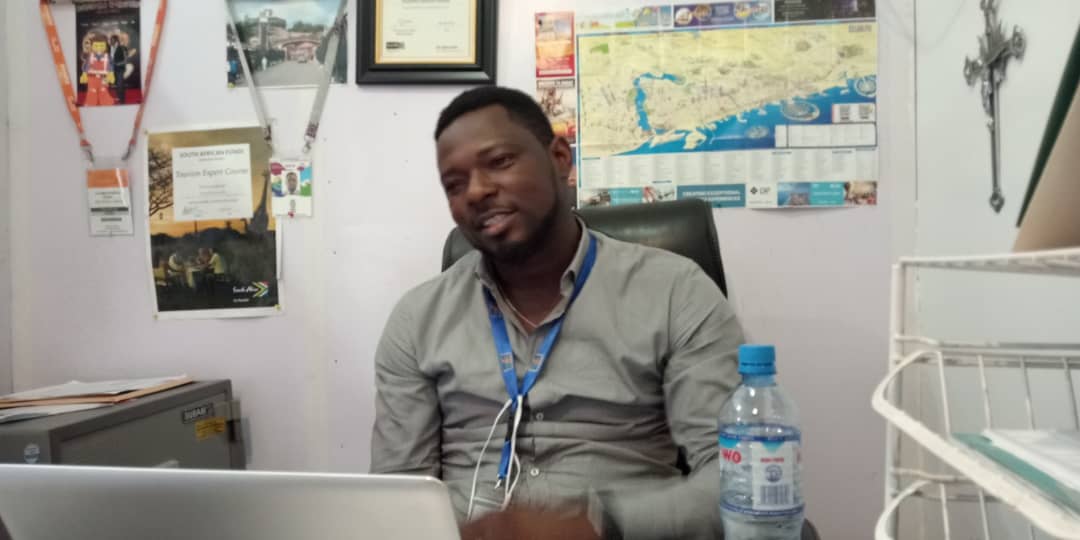By Eric Elezuo
The world of tourism is no longer an all comers affair. It is a professional terrain only reserved for the professionals and erudite minds who are potentially endowed to provide first class travel arrangements, and follow it up with the required attention needed for customers to enjoy the best of travelling and holidaying. One of such prolific organisations is 1860 Travels.
In this brief chat, the CEO, Mr. Francis Daodu, revealed the basics of most impressive journeys and why 1860 Travels is the company of choice. Excerpts:
Could you kindly introduce yourself?
My name is Francis Olusina Daodu. I am the Managing Director of 1860 Travels Limited. We are a travel management company, of course registered in Nigeria as a member of National Association of Nigerian Travel Agencies (NANTA) and International Air Transport Association (IATA). We’ve been in business for over five years and we started from ground zero, so to speak, because we started as a non-IATA agency. We have grown through the ranks in the industry.
Can you confidently say you have arrived?
Well, I will not say we have gotten to where we intend to but it’s our resolve to continue to give our best to travellers, both current and prospective customers, and all stakeholders. We will get there.

Did you dabble into the tourism industry or it came about as a passion?
It is pure passion. I did not dabble into the industry. It is passion for travels and more importantly, the fact that that there are a lot of tourism potentials in our country that drove me into the industry. Unfortunately, these are underdeveloped. I deliberately loined the industry to my quota in ensuring that travels and tourism as a business is developed within our country.
However, considering that our country is still growing and not fully developed, we have to look more at the outbound market. It is therefore, the passion to replicate the good things out there in Nigeria that is our driving force. In fact, we should be the best tourism destination in the world; we should be competing among the best destinations in the world. Unfortunately, this is where we have found ourselves, but, of course, we all will continue to put our efforts at ensuring that this is developed in Nigeria.
How does the fact that Nigeria has no national carrier affect your job as a travel agent, both within and out there?
Of course, it has a lot of effects. Firstly, it means that foreign airlines are the ones to determine the fate of our travellers. Whether we like it or not, there is a lot of foreign exchange involved and although the foreign airlines do employ our citizens, it really does not mean that a bulk of their revenue sits here in Nigeria. This is because they are in business and for them to continue to stay afloat, the revenue make must return to where it should go to – their home country. It’s quite unfortunate but that is the situation.

What are those attractive packages that 1860 Travels has today and intends to provide, that distinguishes it from other travel agencies?
One thing that is very peculiar which stands us out in the industry, despite the numerous travel agencies in Nigeria, is that we believe in the development of young people and that’s why we have young people all around us. You know, wherever there are young people a lot of fresh ideas flow. We believe a lot in the application of technology in ensuring that travels and tourism are best served to our market. So, we understand that wherever you have young people, you have technology and where you have 1860 Travels, you have the best of travel technology. More importantly, we are five years in the industry and we continue to grow and we also continue to apply several ingenuous ideas in ensuring that travels and tourism is best served in and within our markets.
What are the challenges that limit your productivity?
Well, as an SME, it is about the same challenges SMEs face in the country. It also takes me back to what I was saying about national carrier. If we had a national carrier or we had domestic airlines operating within the international space, it would be to our advantage first. Most recently, the Akwa Ibom State government launched their own airline fleet, which, whether we like it or not, will benefit benefit the citizens first. So, let us think about that is happening on the national stage – we will be the greatest beneficiaries. These foreign airlines don’t operate in Nigeria alone, so to an extent, they cannot be blamed because their hands are a bit tied. They are not just giving to us – they are giving back, first and foremost to their citizens, then secondarily, citizens of other countries where they operate and thirdly, general full support. And of course, you must know that every business is set out to make profit, and some of them have devoted a certain percentage in ensuring that they get some of these things done, under the CSR factor. So, it is our job and that of those in the media as well, to keep emphasizing the need for a national carrier. It goes a long way; it does not just controls fares in the market, you also have a lot more independent contractors and mostly Nigerians employed. Also, we cannot underestimate the need for more young people enjoying more CSR from such airlines.
Finally, where do you see 1860 Travels five years from now?
When we started, it was from ground zero, like I said, without any special support. We have been patient and visionary enough and hope that in the next five years, we would get to the global stage. 1860 Travels wants to play on a global stage, we don’t just want to be limited within the shores of Nigeria. We want to play and be seen as a big player on the global scene. And everything has been put in place to ensure that it happens. It is our desire and hope to take the gospel of 1860 Travels to other markets around the world.
Thank you very much for your time
Thank you.

 News6 years ago
News6 years ago
 Featured6 years ago
Featured6 years ago
 Boss Picks6 years ago
Boss Picks6 years ago
 Headline6 years ago
Headline6 years ago
 Headline5 years ago
Headline5 years ago
 Headline6 years ago
Headline6 years ago
 Headline6 years ago
Headline6 years ago
 Headline6 years ago
Headline6 years ago
















